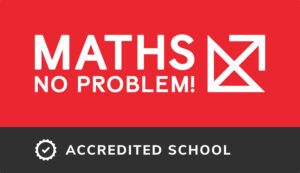Maths
The MATHS Curriculum Overview
We believe that every child can master an understanding and love of maths with the right kind of teaching and support.
Our core maths curriculum follows the Maths – No Problem programme.
Maths Mastery for EYFS
Developing a strong grounding in number is essential so that all children develop the necessary building blocks to excel mathematically. We are following the MNP Foundations curriculum for EYFS children. In addition to this, concepts are also explored through a play-based curriculum and continuous provision. They are immersing themselves in maths from Reception. They are provided with frequent opportunities to build and apply this understanding. They question and examine numbers in a practical way, such as using manipulatives, in order to prepare themselves for the transition into Y1.
 Maths — No Problem! is a series of textbooks and workbooks, for EYFS Reception to 6, which are fully aligned with the 2014 English National Curriculum for Maths and the EYFS 2020 curriculum.
Maths — No Problem! is a series of textbooks and workbooks, for EYFS Reception to 6, which are fully aligned with the 2014 English National Curriculum for Maths and the EYFS 2020 curriculum.
Incorporating the use of resources, problem solving and group work, Maths – No Problem is child-centred problem-solving based methodology.
TEACHING MATHS FOR MASTERY
Whole class
The whole class works through the programme of study at the same pace with ample time on each topic before moving on. Ideas are revisited at higher levels as the curriculum spirals through the years.
Differentiated activities
Tasks and activities are designed to be easy for pupils to enter while still containing challenging components. For advanced learners, the textbooks also contain non-routine questions for pupils to develop their higher-order thinking skills.

Problem-solving
Lessons and activities are designed to be taught using problem-solving approaches to encourage pupils’ higher-level thinking. The focus is on working with pupils’ core competencies, building on what they know to develop their relational understanding, based on Richard Skemp’s work.
Concrete, Pictorial, Abstract (CPA) approach
Based on Jerome Bruner’s work, pupils learn new concepts initially using concrete examples, such as counters, then progress to drawing pictorial representations before finally using more abstract symbols, such as the equals sign.
Variation
The questions and examples are carefully varied by expert authors to encourage pupils to think about the maths. Rather than provide mechanical repetition, the examples are designed to deepen pupils’ understanding and reveal misconceptions.
International research
By incorporating established learning research into a highly effective approach, Singapore has become a “laboratory of maths teaching”. The Primary Maths Series is founded on the international research of Piaget, Dienes, Bruner, Skemp and Vygotsky and has been tested and refined over the last 30 years in Singapore.
UK evidence
The MNP Primary Series was assessed by the DfE’s expert panel, which judged that it met the core criteria for a high-quality textbook to support teaching for mastery. As a result, the Maths – No Problem! Primary Series are recommended textbooks for schools on the mastery programme.
The Primary Series is one of the few textbooks that complies with the UK’s high-quality textbook guidance published by the National Centre for Excellence in Teaching Mathematics (NCETM).
If you would like to know more about the way mathematics is taught at Our Lady’s Bishop Eton School, please watch the videos by clicking on this link: https://mathsnoproblem.com/en/parent-videos/
CALCULATION POLICY
Here at Our Lady’s Bishop Eton we have adopted Maths – No Problems Calculation Policy which can be viewed at the link below.
THE FOUR OPERATIONS
We encourage our children to find multiple ways of solving problems. They learn to develop as many methods as possible when considering calculation strategies, these are included in the National Centre for Excellence in the Teaching of Mathematics Calculation Guidance for Primary Schools.
MATHS NO PROBLEM PRE-LEARNING AND CATCH UP
Children who have maths gaps, for whatever reason, are supported through Pre-learning or Catch Up sessions.
NUMBER SENSE
In addition to lessons and games played at home, the school has also signed up to Numbots and we would encourage children to continue to use this at home, particularly KS1 children.
MULTIPLICATION TABLES
In addition to learning multiplication through the Maths – No Problem programme, our children learn their tables through rote learning activities. All of our children are registered to use the Maths Timestable Rock Stars programme and parents are encouraged to access this at home.
ARITHMETIC
Children in the KS2 reinforce their basic number bonds and fluency in the four operations through regular strategies such as Mental Maths & Arithmetic Tests and 4 A Day.
